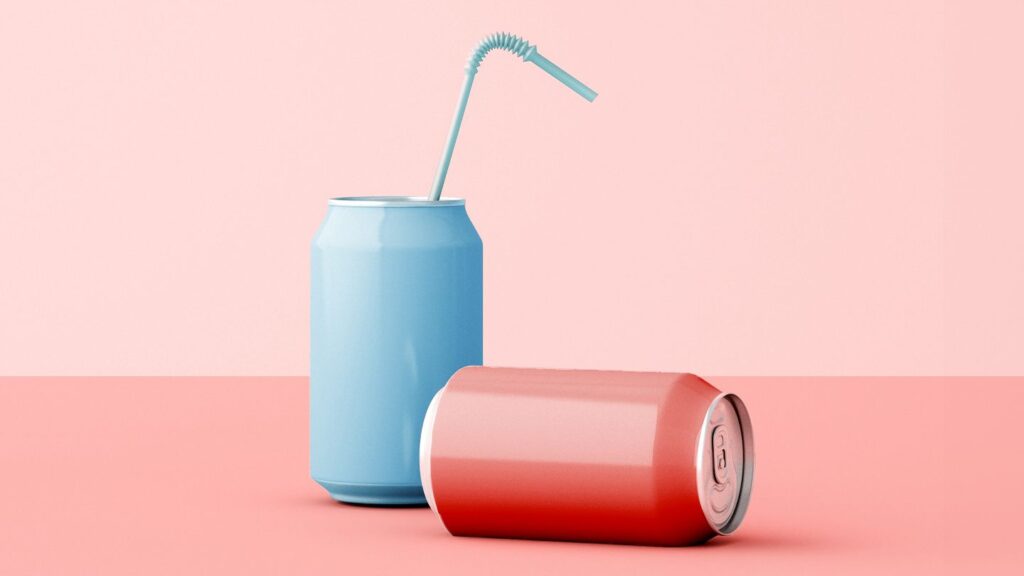
- Everyone knows that drinking soda is not a healthy choice, and there is much debate whether diet soda is a healthy alternative.
- Past research has linked drinking diet sodas to several health risks including type 2 diabetes.
- A new study has found that women with type 2 diabetes who regularly choose to drink water over diet soda may be more likely to achieve weight loss, as well as diabetes remission.
Everyone knows that drinking soda is not a healthy choice, due to its high calorie and sugar content. However, there is much debate about whether or switching to diet sodas is better.
Past research has linked drinking diet sodas — which contain sweeteners like aspartame and sucralose — to several health risks, including heart disease, liver diseaseTrusted Source, kidney issues, weight gainTrusted Source, metabolic syndrome, increased cancer riskTrusted Source, and type 2 diabetes.
Now a new study presented at the 85th Scientific Sessions of the American Diabetes Association (ADA) has found that women with type 2 diabetes who regularly choose to drink water over diet soda may increase their likelihood to achieve weight loss and diabetes remission.
The findings are yet to appear in a peer-reviewed journal.
Diet soda is still an ultra-processed food
For this study, researchers recruited 81 adult women who had both type 2 diabetes and obesity or overweight, and who consumed diet soda as part of their normal diet.
According to the Centers for Disease Control and Prevention (CDC), about one-fifth of AmericansTrusted Source drink diet sodas on a regular basis. And the amount of diet beverages consumed in the European Union has grown from 23% in 2016 to 30% in 2021.
Diet sodas are considered ultra-processed foods due to their manufacturing process and ingredients like additives and artificial sweeteners.
Past research has linked ultra-processed foods to an acceleration in biological aging, and a 10% increase in mortality risk.
A study published in February 2024 reported a link between ultra-processed food consumption and 32 negative health issuesTrusted Source, including colorectal cancer, pancreatic cancer, sleeping issues, anxiety, asthma, high blood pressure, and Crohn’s disease.
HEALTHLINE NEWSLETTER
Enjoy a free diabetes-friendly snack list
Our printable list compiles our favorite nutritious snack ideas to help you manage your blood sugar levels. Join our Type 2 Diabetes newsletter for your free copy and expert guidance twice a week.
Your privacy is important to us
90% of women drinking water instead of diet soda reach diabetes remission
Study participants were randomly grouped to either one group that continued to drink diet soda five times per week after their lunch, and another group that substituted their usual diet soda with water.
During the study, participants were also provided with a six-month weight loss intervention, followed by a 12-month weight maintenance program.
At the 18 month follow-up, researchers found that participants in the water group experienced a much larger average weight loss when compared to the diet soda group.
Additionally, 90% of study participants in the water group reached type 2 diabetes remission, compared to only 45% in the diet soda group.
Scientists also reported that participants in the water group experienced significant improvements to a number of health markers, including body mass index (BMI), fasting glucose (blood sugar), insulin resistance, triglycerides, insulin levels, and post-meal glucose response.
“These findings challenge a common belief in the U.S. that diet drinks have no potential negative effects for managing weight and blood sugar,” Hamid R. Farshchi, MD, PhD, CEO of D2Type, former associate professor in the School of Life Sciences at the University of Nottingham, in the United Kingdom, and lead author of the study, said in a press release.
“However, with most of women in the water group achieving diabetes remission, our study highlights the importance of promoting water, not just low-calorie alternatives, as part of effective diabetes and weight management. It’s a small change with the potential for a big impact on long-term health outcomes,” Farshchi added.